Enhancing Channel Capacity with Efficient Power Allocation Using Water Filling Algorithm
Problem Definition
PROBLEM DESCRIPTION:
In wireless communication systems, efficient power allocation is crucial for enhancing the channel capacity and improving overall system performance. Current power distribution methods may not always optimize the channel capacity as they do not consider individual channel requirements. This leads to inefficient use of power resources and potential signal distortion at the receiving end.
Traditional power allocation algorithms may not be sufficient to address the specific power needs of each channel in a wireless system. In order to maximize the channel capacity, it is essential to develop a new algorithm that can efficiently distribute power among users based on their individual requirements.
Therefore, there is a need to explore and implement a novel water-filling algorithm for power allocation in wireless communication systems. This algorithm should be capable of dynamically adjusting power distribution based on the varying channel conditions and user needs, ultimately leading to enhanced channel capacity and improved system performance. This project aims to address this specific issue by developing and implementing a water-filling approach for channel capacity enhancement with efficient power allotment.
Proposed Work
The project titled "Water filling approach for channel capacity enhancement with efficient power allotment" focuses on improving channel capacity in wireless communication systems through the implementation of a new water-filling algorithm for power allocation. By efficiently distributing power among users in the system, the channel capacity is increased, leading to higher bandwidth and better overall system performance. The algorithm is designed and implemented using MATLAB software, with modules such as Regulated Power Supply, Relay Driver, Energy Metering IC, and Wireless Sensor Network. This project falls under the categories of Digital Signal Processing, MATLAB Based Projects, and Wireless Research Based Projects, with subcategories including Channel Equalization, Energy Efficiency Enhancement Protocols, Wireless Security, and Noise Channel Analysis Based. This M.
tech project aims to optimize power distribution in wireless systems to enhance channel capacity and improve signal quality.
Application Area for Industry
This project can be applied to various industrial sectors where wireless communication systems are crucial for operations, such as telecommunications, manufacturing, transportation, and healthcare. Industries often face challenges with inefficient power allocation in wireless systems, leading to reduced channel capacity and overall system performance. By implementing the proposed water-filling algorithm for power allocation, these industries can optimize power distribution based on individual channel requirements, ultimately enhancing channel capacity and improving signal quality. Specifically, in the telecommunications sector, this project's solutions can help in increasing bandwidth and ensuring reliable communication networks. In the manufacturing sector, improved wireless communication systems can lead to enhanced automation and process efficiency.
In the healthcare sector, better channel capacity can facilitate telemedicine services and remote patient monitoring. Overall, implementing this project's solutions can result in increased productivity, reduced downtime, and improved customer satisfaction in various industrial domains.
Application Area for Academics
The proposed project, focusing on the implementation of a water-filling algorithm for power allocation in wireless communication systems, holds great potential for research by MTech and PhD students in the field of Digital Signal Processing, MATLAB Based Projects, and Wireless Research Based Projects. This project addresses the critical issue of inefficient power distribution in wireless systems, which limits channel capacity and overall system performance. By developing and implementing a novel algorithm that dynamically adjusts power distribution based on individual channel requirements, researchers can explore innovative methods for enhancing channel capacity and improving signal quality. MTech and PhD students can utilize the code and literature of this project for their dissertation, thesis, or research papers, allowing them to pursue advanced research methods, simulations, and data analysis in the areas of Channel Equalization, Energy Efficiency Enhancement Protocols, Wireless Security, and Noise Channel Analysis. The future scope of this project includes further optimization of power distribution algorithms and the exploration of advanced technologies for wireless communication systems.
Keywords
Wireless communication, Power allocation, Channel capacity, System performance, Water-filling algorithm, Power distribution, User requirements, Signal distortion, Power resources, Wireless systems, Channel conditions, Bandwidth, MATLAB software, Regulated Power Supply, Relay Driver, Energy Metering IC, Wireless Sensor Network, Digital Signal Processing, Wireless Research, Channel Equalization, Energy Efficiency, Wireless Security, Noise Channel Analysis, WSN, Manet, Wimax, LEACH, SEP, HEED, PEGASIS, Protocols, Awgn, Reliegh Fading, Trellis Codes, DSP, Digital Filter, Analog Filter
| Shipping Cost |
|
No reviews found!






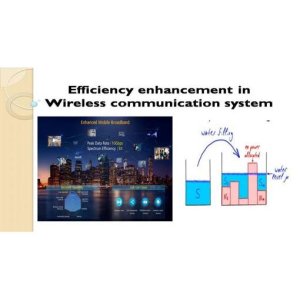
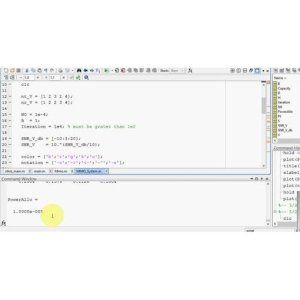














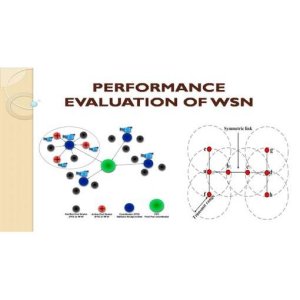
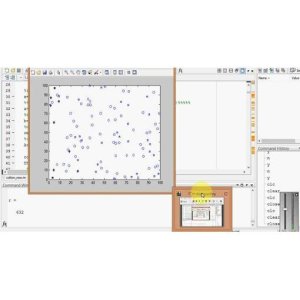

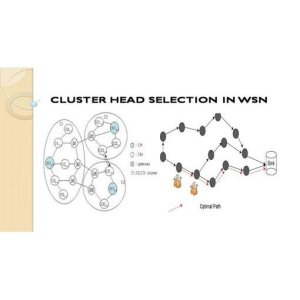
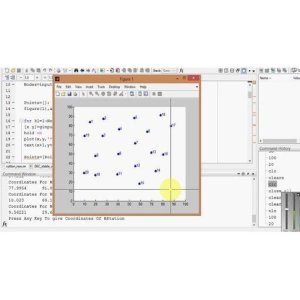

































No comments found for this product. Be the first to comment!